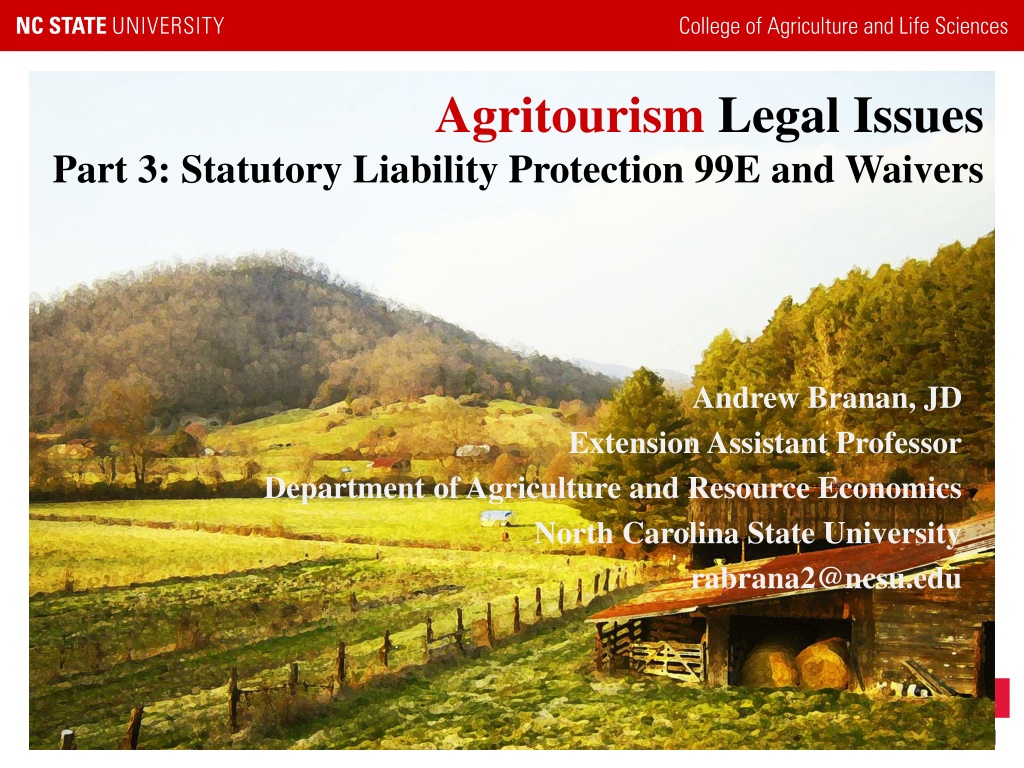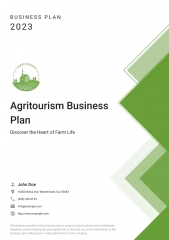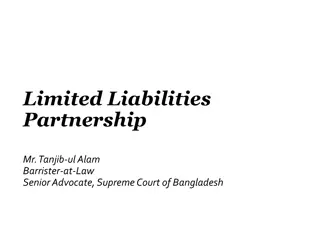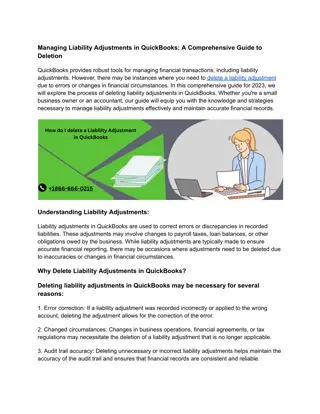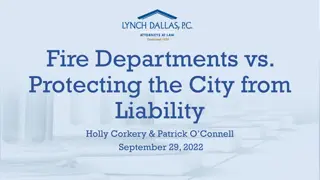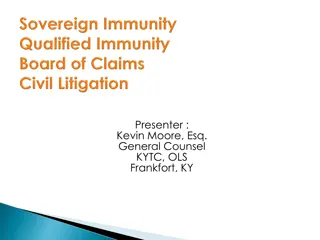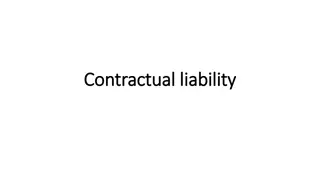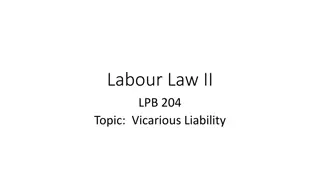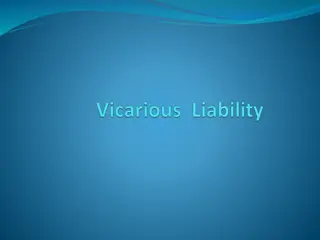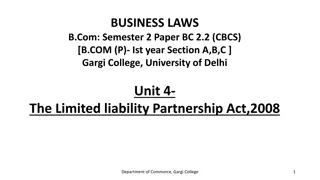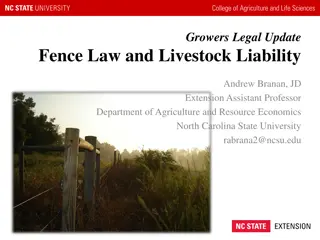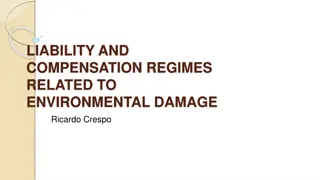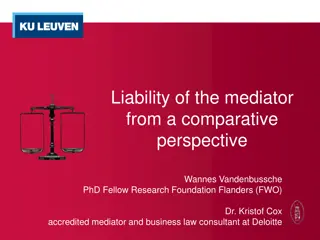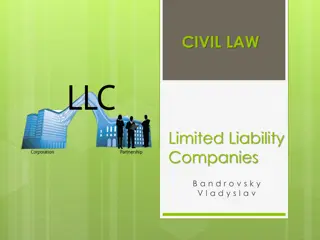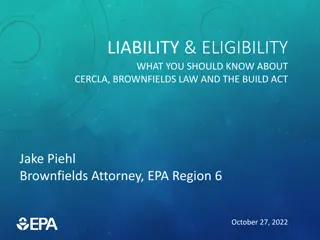Understanding Agritourism Legal Issues: Liability Protection and Risk Management
Explore the legal aspects of agritourism, such as liability protection, risk management, basic common law duties, and the assumption of risk theory. Learn about statutory liability protection, waivers, and ways to safeguard your business and assets. Understand the importance of following regulations and maintaining insurance coverage to mitigate potential liabilities.
Download Presentation

Please find below an Image/Link to download the presentation.
The content on the website is provided AS IS for your information and personal use only. It may not be sold, licensed, or shared on other websites without obtaining consent from the author. Download presentation by click this link. If you encounter any issues during the download, it is possible that the publisher has removed the file from their server.
E N D
Presentation Transcript
Agritourism Legal Issues Part 3: Statutory Liability Protection 99E and Waivers Andrew Branan, JD Extension Assistant Professor Department of Agriculture and Resource Economics North Carolina State University rabrana2@ncsu.edu
Disclaimer This presentation is not legal advice This presentation is for educational purposes only and merely raises issues of which you should be aware Before making a building decision speak with your county planning office They have the official say and enforcement power In law particularly zoning and construction better to ask forgiveness than seek permission is not really a thing Speak with Insurance Agent before operating
Protecting Your Business and Your Assets Liability Operating in a safe manner ( risk management ) Invitees vs. trespassers Insurance - pays damages and cost of defense Property insurance (auto, home, farm) Product liability insurance Professional liability insurance Business Entity (separation of personal assets from those that create the liability) Regulation follow the regulations! Government can stop you from operating, meaning no return on investment, no ability to repay debt, etc. Violation of a regulation helps a person s liability claim against you And you could lose your insurance You feel government has exceeded its authority? Recourse through litigation or political process
Basic Common Law Duty Common Law duty owed to a permitted visitor A landowner owes "duty to exercise reasonable care in the maintenance of [his] premises for the protection of lawful visitors. "Reasonable care' requires that the landowner not unnecessarily expose a lawful visitor to danger and give warning of hidden hazards of which the landowner has express or implied knowledge. Nelson v. Freeland, 349 N.C. 615 (1998) Trespassers owed no duty except free from wanton or willful act No Trespassing signs clearly mark unauthorized parts of farm
Assumption of the Risk Theory: Customer knows what they are getting into by setting foot on a farm Contributory Negligence : sign informs customer of a legal theory that bars recovery for injury Essentially: things can go wrong fast on a farm Untested in North Carolina We don t have a case fact pattern (yet) to illustrate inherent risk if a jury decided that something was not an inherent risk , then statute would not apply
Inherent Risks Salmonella from petting goats? Food borne illness from goods sold on-farm? Falling off a hay-ride? Cutting hands on a farm implement? Drowning in a pond? Falling in a ditch? Falling in an uncapped well? Gored by a bull? Kicked by a donkey Scratched by a rooster?
Liability Waivers? Not required by 99E Statute presumes Assumption of the Risk with signage posting Only if post signs according to statute May result in dismissal of case if facts supportive Waivers and statute do not prevent lawsuit Inherent risks are not well defined Plaintiff may present facts that a judge believes are not inherent risks
Loss of Statutory Liability Protection If the operator has actual knowledge or reasonably should have known of an existing dangerous condition on the land, facilities, or equipment used in the activity or the dangerous propensity of a particular animal used in such activity and does not make the danger known to the participant, and the danger proximately causes injury, damage, or death to the participant[,] then protection is lost. N.C.G.S 99E-3(b)(2) Failure to post signage two signs minimum statutory language results in loss of statute protection
Injury by docile animal "One who keeps a domestic animal which possesses only those dangerous propensities which are normal to its class is required to know its normal habits and tendencies. He is, therefore, required to realize that even ordinarily gentle animals are likely to be dangerous under particular circumstances and to exercise reasonable care to prevent foreseeable harm. Sibbett v. M. C. M. Livestock, Inc., 247 S.E.2d 2, 37 N.C.App. 704 (N.C. App. 1978) (quoting the Restatement of Law, Torts, 518)
